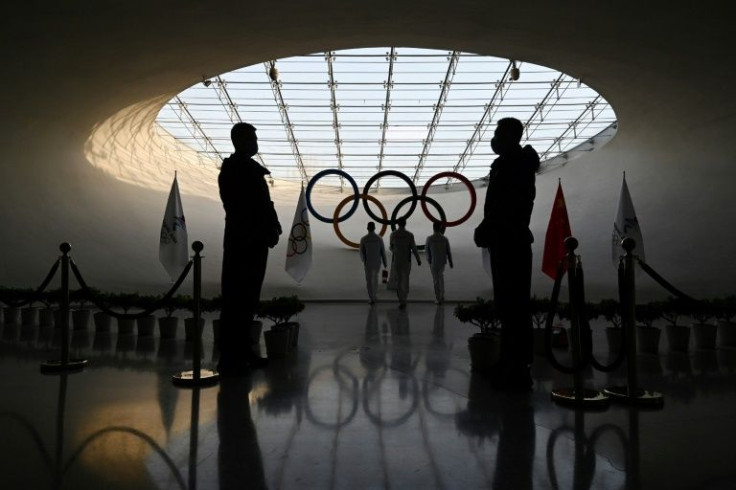China Locks Entire Office Building With Employees After 1 Omicron Case Detected
KEY POINTS
- A 26-year-old woman in China became the first omicron case reported in the nation's capital of Beijing
- The woman's workplace and the residential compound where she lived have since been sealed off
- Authorities suggested that the woman might have contracted the virus after handling international mail
An office building and residential compound in Beijing, China, were put under lockdown following the emergence of the city's first-ever omicron case over the weekend.
An unnamed 26-year-old woman tested positive for the COVID-19 variant in the Chinese capital Saturday, CNN reported.
She had not come into contact with a confirmed case and had not left Beijing in the past 14 days, which raised fears that omicron may already be spreading in the community, according to the outlet.
The woman's infection is the first case of the variant to be reported in Beijing and comes around three weeks before the city is scheduled to host the 2022 Winter Olympics early next month.
Authorities have sealed off the woman's workplace as well as the residential compound where she lived.
Additionally, authorities conducted "extensive" contact tracing and testing in "high-risk" areas after the woman's case was confirmed.
Dozens of staff members inside the woman's office building have been in lockdown since Saturday, with people inside begging for beds to be left outside for the stranded workers, Insider reported, citing Chinese state-linked media outlet Beijing Daily.
Large tents were set up outside of the building to conduct and process COVID-19 tests for everybody inside until the site is declared safe to open.
The woman's residential compound — a 15-minute drive away from the Games' primary venue, the Beijing Olympic Park — has also been sealed off while people get tested and authorities conduct environmental sampling.
The residents of the community were allowed fresh air, in contrast to stricter lockdowns in other parts of the country that confined people to their apartments, as per CNN.
Chinese state media has since published the woman's travel history over the past two weeks.
Among the locations included in the list were subway stations, public bathrooms, a supermarket, a luxury shopping center, a Dior store, a restaurant famous for its Peking duck, a cinema, a hair salon, a stand-up comedy venue and a ski park.
More than 16,000 people linked to the aforementioned locations have tested negative, said authorities, who suggested that the woman might have contracted the virus after handling international mail.
Imported goods have repeatedly been blamed by Chinese officials as the cause of outbreaks, but the U.S. Centers for Disease Control and Prevention said the risk of fomite — or surface — transmission was "low" compared to direct contact, droplet transmission or airborne transmission.
All of Beijing's new arrivals will be required to undergo COVID-19 testing both in advance and after entry starting this Saturday. The capital has also suspended dozens of international flights.
Despite the measures, Wang Guangfa, a respiratory expert at Peking University First Hospital, said that "it is very possible that new cases will emerge” if the cause of the woman’s infection remains unclear, according to state-run outlet Global Times.
China reported a total of 136,027 COVID-19 cases and 5,700 deaths between Jan. 3, 2020, and Monday, data provided by the World Health Organization showed.

© Copyright IBTimes 2025. All rights reserved.






















